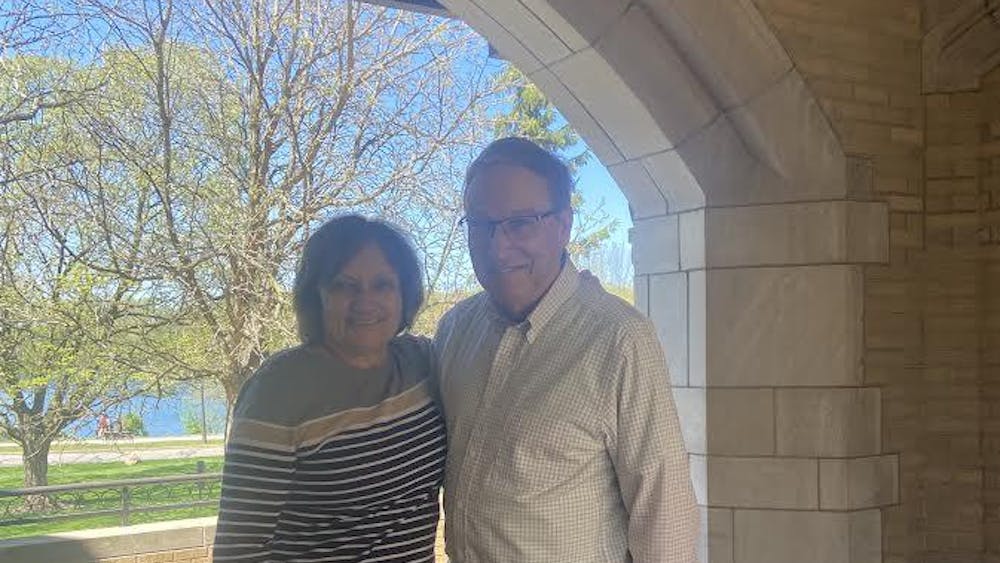Notre Dame undergraduates had an opportunity to get an insider's perspective on the handling of the recent recession when Nellie Liang, a director of the Federal Reserve Board (the Fed) of Governors, came to campus to give a lecture aimed at economics majors on financial stability politics after the financial crisis.

Liang, who graduated from Notre Dame in 1979 with a B.A. in economics, gave a broad overview of the Fed's role in combating the collapse, focusing on the theory of bank runs and how to prevent future crises in the financial sector.
"From my personal perspective there are two parts of the recent crisis that I find fascinating from an economics point-of-view and really important for what we're doing going forward: investor runs - that is, banks runs and panics - and how to address the largest financial institutions going forward," Liang said.
Liang elaborated on the theory of bank runs and how they cause widespread financial instability in a system, often without good warning or reason.
"Bank runs really cause trouble, or we think of financial instability or systemic risk, when there's a rumor about a bank that leads to rumors about other banks," Liang said. "If you've got a bank here that doesn't look so good, and you don't really understand why it doesn't look good, then why should the bank over there look good? And so that's what we would call panic, widespread bank runs that force the fire sales of bank assets."
Liang said some of her research focused on getting at the underlying theory of bank runs, and investigating the possibility of predicting them in a model.
"There are two models of runs: one is called 'sunspot,' meaning that they're just random and inherent in a short-term model, so there's just not much you can do about it, except maybe government insurance," Liang said. "Or they could be related to underlying economics, which is what we investigated with regression analysis. We found that the runs could be explainable, especially over a matter of weeks."

The result of this research reinforced a central theme of Liang's talk, namely that preventing the factors leading to a financial meltdown in the first place is far more effective than trying to deal with crisis.
"When you're in trouble, when you're in a crisis, there are no good decisions, so you really need to think about how to avoid getting there and that's where you spend your effort," Liang said.
In addition to examining the patterns and effects of bank runs, Liang addressed the need to regulate the largest financial institutions that pose the greatest systemic risk.
"Safety and soundness in individual institutions is just not sufficient for financial stability - distress at some firms can lead to distress at others, sort of like innocent bystanders, so this needs to be incorporated into how we think about designing regulations for banks," Liang said. "Big banks that might impose distress on others have to hold more capital so that they're less likely to reach that point."
Liang said it is important to acknowledge the growing importance of non-regulated sectors in the industry, known as shadow banks, in considering policy formulation.
"Shadow banks are non-regulated banks - this includes things like securitizations, finance companies that aren't banks, mutual funds, insurance companies, so there's a lot of intermediation that goes on in finance," Liang said. "They were practically non-existent in the 1960s, but this sector has grown over time and is now about as large as the banking sector in GDP terms. Although they don't have access to government insurance, it's not clear that we may even want them to."
Liang ended her talk by emphasizing the importance of continual supervision of the financial industry going forward, especially as it returns to full health and, potentially, old habits.
"We have to keep monitoring systemic risk because when you put more regulation in one part, the activities seep into other parts of the system," Liang said. "And, lastly, history has shown that memories are very short and five years from now people will be happy to take these sorts of risks again, so we have to keep an eye on that."
Contact Henry Gens at hgens@nd.edu











